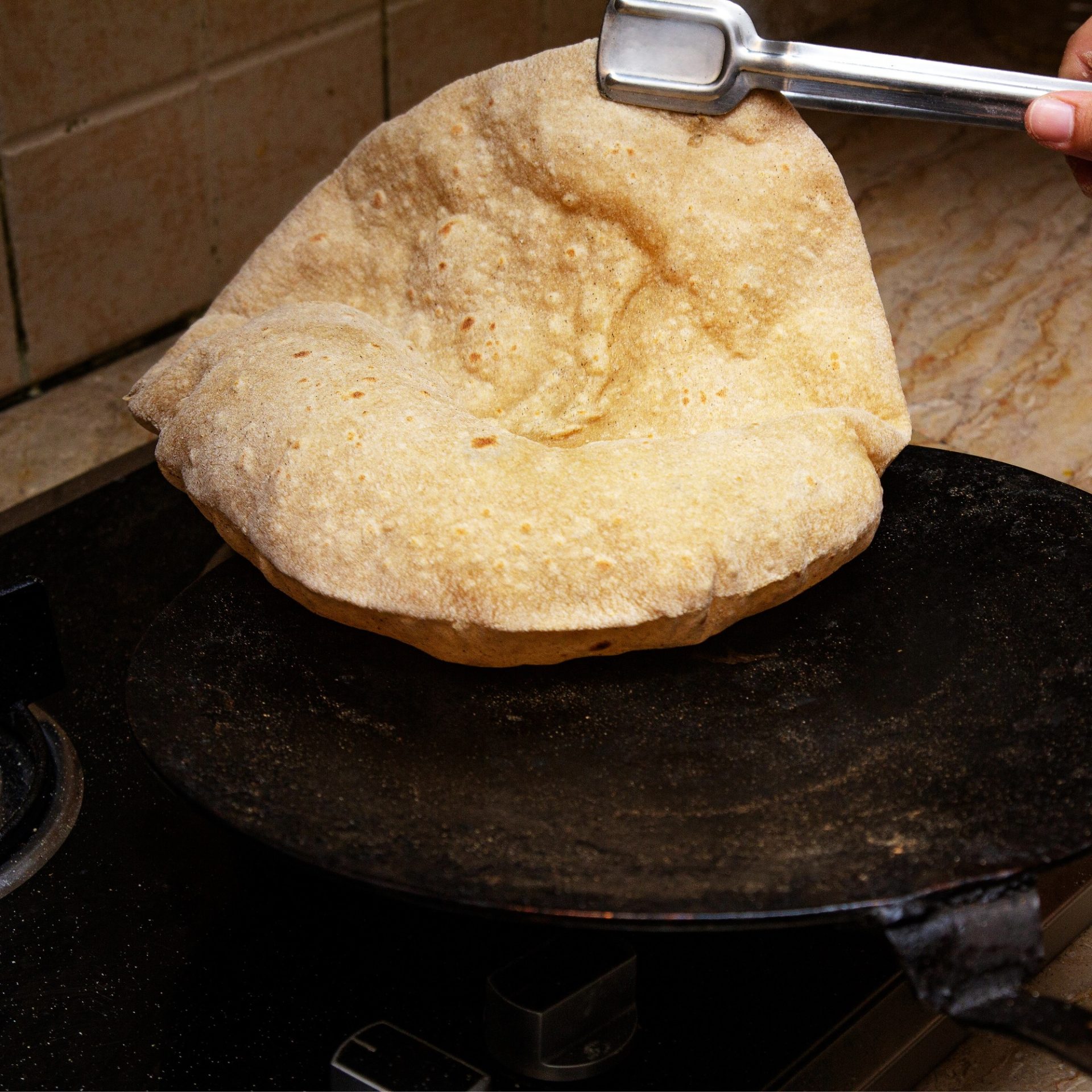“Do you want one more roti?” Asks Revati
Once I was sitting in my college ground with my group of friends, chatting, laughing and eating while soaking ourselves under the winter sun when Revathi, a friend of mine known for her weird sense of humour was observing the women’s basketball team play. They were practicing well, putting their sweat and tears into it. Revathi smiled at their earnest preparations for the inter-college competition which was due in a week. Curious, I asked, “what was so amusing?” Revati grinned mischievously and clapped her hands to draw everyone’s attention towards her.
When she made sure all five of us were listening to her she started to narrate a story. Revati began.
“We had a party at home to celebrate the 10th birthday of my younger brother. My father arranged a halwai (confectioner) to prepare all the food for the party. They prepared delicious and tasty food including poori, paneer-sabzi, sitafal-sabzi, aloo-tamatar sabzi, white rice, kheer, gulab-jamun, boondi-raita, and salad. But you know what they did not prepare?” Revati asked.
“What?” We all asked in unison.
“Rotis.” She continued further,
“You know, my fufaji (uncle) does not eat rice as he is diabetic. So my sister prepared some dough for rotis and left to serve tea to guests and supervise if all were having a good time. I quickly made rotis for fufaji. Just as I came out of the kitchen to join my cousins who were all dancing, enjoying the party, my brother said…” Revati took a long pause after that stirring our eagerness to know.
“What did he say?” We asked. She replied, “he asked me to make more rotis as some other guests were “also” keen to have garma-garam (warm) rotis!”
“Oh no!” we expressed our dismay. Revati further added,
“I spent one hour making rotis and serving while sweating like a pig! My hair became sticky and I was no longer in the mood to dance but to swim in rivers to cool off the heat. While I made rotis, my sister came to me and asked if she could also have one. I gave her one roti. As she ate, she expressed her confusion at the salty taste of the rotis. Bewildered, she said, “The rotis are salty but I did not mix salt in the dough, then how come?”

Source: Pinterest
“Listening to what she said, I cleared off the sweat on my forehead with the sleeves of my pink cotton suit I bought for this very occasion and elicited a devilish smile.” Turning towards us, Revati asked, “guess what happened?”
“What?” The suspense, the mystery, the twist was too much for us to handle.
“My sister immediately ran out of the kitchen thinking I did something gross. Few minutes later, when she returned to the kitchen, she had droplets of sweat on her forehead and was wiping her mouth with her dupatta (scarf). She had thrown up.”
Revati was interrupted in between by another friend of mine, who unable to contain his doubts, and to confirm if what he thought was correct, asked impatiently,
“What? Was that really your sweat that made the rotis salty?”
“NO!!” Revati exclaimed and started laughing hysterically, adding,
“I had prepared more dough to which I added salt, after my sister left to serve tea to guests but she thought the same as you; that I poured my sweat into it! I knew there would be more people wanting to eat rotis because it happens all the time.”

Source: Pinterest
Revati’s story made me ponder and reflect. I thought to myself, what was the point of celebration when neither Revati nor her sister could enjoy; chatting, dancing, dressing up, wearing her pink suit. What was the point if all she had to do was spend time in the kitchen rolling flatbreads with heat, grime and sweat as her party partners? Wonder, what may have happened if Revati and her sister refused to make those rotis that day? Why wasn’t the caterer or halwai instructed to add a few rotis in his menu? Was it because “a few rotis” by the halwai would have meant more money spent or was it that Revati’s labour in the kitchen was too cheap, affordable or even insignificant?
And I asked myself, does my mother enjoy cooking at four in the morning for all the festivals and celebrations? Why is it always mothers, sisters and women folk in the household involved in culinary labour, usually transferring their leisure, their need to enjoy and be merry on the back-burner, serving guests, prioritizing others’ desire to celebrate at the cost of their own? What if we stopped naturalizing roles within the house and instead encouraged everybody interested in culinary pursuits to help and cooperate, to engage and participate, to sing and dance over piping hot tea, kneading, rolling, frying, and coming together as a whole to contribute and enjoy. That would indeed be a celebration, right?


Something I can relate with!
I’m sure a lot of women would 🙂
Story of our lives
The way this story is portrayed is awesome. Apart from the thought which writer wanted to express, the story keeps a reader engaged till the end, that is appreciable 👏
The way this story is portrayed is awesome. Apart from the thought which writer wanted to express, the story keeps a reader engaged till the end, that is appreciable 👏
The way this story is portrayed is awesome. Apart from the thought which writer wanted to express, the story keeps a reader engaged till the end, that is appreciable 👏